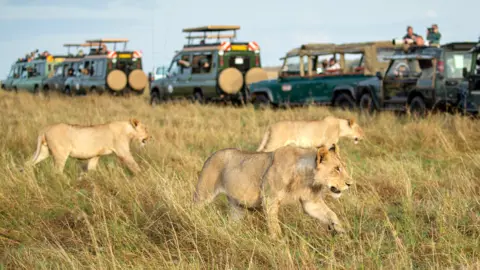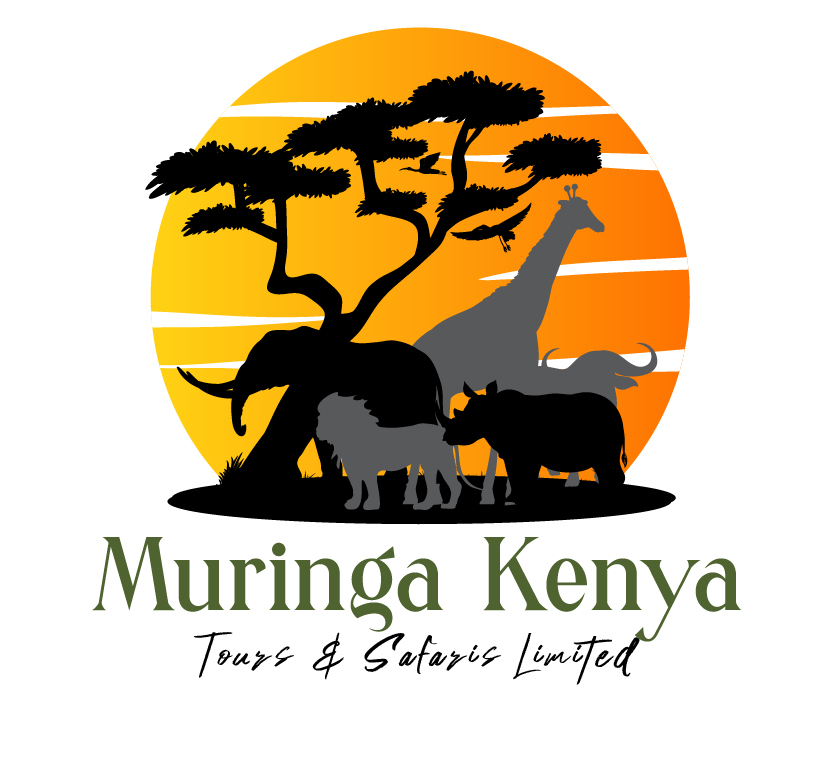Free Tips On Deciding On Devil666 Slot Sites
What Are The Precautions To Stay Healthy I Need To Take While Travelling To Mombasa, Kenya For A Holiday?If you're planning a trip to Mombasa (Kenya) it's crucial to be aware the health hazards. Here are some essential precautions to take.
1. Vaccinations
Routine Vaccinations: Ensure that you are up-to-date on routine vaccines such as measles-mumps-rubella (MMR), diphtheria-tetanus-pertussis, varicella (chickenpox), polio, and your yearly flu shot.
Hepatitis A It is recommended for everyone who travels because of the dangers of drinking water and food that is contaminated.
Hepatitis B : Travelers who might be exposed to blood or bodily fluids from sexual contact, medical treatment, or drug usage should be screened.
Typhoid is essential for anyone who stays with friends or family members, visits smaller cities or rural areas, or who eats out in the open.
Yellow Fever travelers arriving from countries that have a risk of transmission of yellow fever may need to present a certificate of vaccination. Find the most current guidelines.
Rabies: A consideration for those involved with outdoor activities that put them at risk of bites, like hiking, camping or caving.
2. Malaria Prevention
Antimalarial Medicine: Mombasa is a malaria-endemic region. Ask your doctor about the best antimalarial drug for you.
Wear long sleeves and a pair of pants at late at night and during the evening, and apply insect repellents that contain DEET. Sleep on a mosquito net when you are not in a room with air conditioning or one with a good screen.
3. Food and Water Safety
Consume only bottled or boil water for drinking. Avoid drinking the tap water, ice or drinks that aren't sealed.
Make sure to eat food that is cooked well. Avoid eating raw or undercooked seafood, meats and unwashed fruits and vegetables. Avoid street food. Instead, choose establishments that have a good reputation.
4. Diarrhoea in Travelers
Preventive measures: Wash your hands regularly using soap or water. Avoid drinking or eating foods from a source that is not safe.
Always carry medication, such as Imodium (loperamide), and salts or oral rehydration. For severe instances, consult your physician for antibiotics.
5. Sun Protection
Sunscreen: Pick a broad-spectrum sunscreen that has SPF 30 or more. Make sure to apply it regularly, especially when you've been in the water or sweated.
Wear sunglasses and hats to protect yourself from the sun. Also, don't forget to wear light, long sleeved clothes.
6. Hydration and heat
To avoid dehydration, drink lots of fluids. Dehydration is often caused by excess caffeine or alcohol consumption.
Avoid Overexertion. Take a break and take a rest, especially during the time when the sun is highest. Avoid heat stroke or heat exhaustion by seeking shade or cool spots.
7. Security in Water Activities
Swimming in Areas Designated be aware of the local conditions, such as currents and dangers.
Awareness of marine life Be aware of the dangers of marine life and steer clear of it, including jellyfish and seaurchins. Wear water shoes if walking along shallow water.
8. Care and Insurance. Care and Insurance
Travel Insurance: Ensure that you have a comprehensive travel insurance policy that covers medical emergencies including evacuation.
Local Medical Facilities: Familiarize yourself with the locations of reputable medical facilities in Mombasa. Hotels with major chains usually provide information about nearby hospitals and doctors.
Make sure you have enough medication enough to last the duration of your excursion.
9. Emergency Contacts
The Embassy: Contact the embassy of your home country in Kenya.
Local Emergency Numbers - Know the emergency number for your area Emergency numbers include: Fire (999), Police (999) Ambulance (999).
If you take these precautions to protect your health, you can minimize risks and enjoy your vacation in Mombasa. Have a look at the top island snorkeling in mombasa for blog advice including africa tours, kenya beach and safari holiday, tours and safaris in kenya, trips to kenya africa, mombasa tours, africa tours and safaris, safari trips in kenya, tours and safaris, holiday packages mombasa, mombasa tour packages and more.

What Are The Weather-Related Considerations I Need To Be Aware Of While On Holiday In Mombasa?
Understanding the local weather patterns can help you plan your travels in the right way and make the most of the enjoyment of your trip. Here are some essential aspects to keep in mind.
1. Climate Overview
Tropical Climate: Mombasa has a tropical climate that is hot and humid all year. Warm temperatures are expected and temperatures typically range between 24degC(75degF), and 32degC(90degF).
2. Seasons
The Hot and Humid season (November-April) is defined by high temperatures and high humidity. The peak tourist season is December and January.
Long rains from April to June : Heavy rainfall and storms are typical during the season of rain. The roads may be muddy, making difficult for travelers. This is the off-season for tourism.
The cooler season (June-October) is the ideal time for visiting, as temperatures are lower and the humidity level is lower. The weather is generally pleasant and ideal for outdoor activities.
Short Rains, October to November It is a time where there are fewer and less heavy rains. Rain showers are usually brief and are followed by bright sunshine.
3. Packing Tips
Lightweight Clothing - Pack clothing that's breathable and light, like linen or cotton to keep cool during the summer months when it's humid.
Rain gear: If you are traveling during rainy season, bring an waterproof jacket, an umbrella, and waterproof shoes.
Sun Protection: Apply sunscreen with an SPF of high. Wear a wide brimmed glasses and a hat. Wear light clothes that cover the skin.
Swimwear: Take your swimwear to the beach, or hotel pool.
4. Weather-specific Activities
Beach Time - The ideal time to go to the beach during cooler temperatures (June to October) is when the water is calm and the weather nice.
A calm and clear ocean is perfect for diving, snorkeling and water sports, from November to March.
Wildlife viewing: Now that the weather gets better and the sun is shining, it's a perfect time to go on safaris or safaris and wildlife tours.
5. The Health Considerations
Keep hydrated. The humid and hot weather will make it necessary to drink plenty of water. Take plenty of fluids especially when you're outside.
In the event of heat-related illness, be aware of the risk of heat exhaustion or heat stroke. Wear loose fitting clothing and avoid vigorous physical activity during peak temperatures.
6. Travel Adjustments
Travelling during the rainy season: You should be ready for travel disruptions when you travel during this time. You may find that some roads are impassable and outdoor activities may be restricted.
The rainy season is often responsible for flight delays. Keep yourself informed of your travel plans and make contingency plans.
7. Environmental Considerations
Natural Hazards: Be aware to the possibility of flooding when heavy rains come down. Be aware of current weather conditions, and follow local recommendations regarding security.
Be aware of tides. They are unpredictable and can significantly impact beach activities. Check local tide charts for safe swimming, beachcombing and many other activities.
By understanding these weather considerations it will help you plan your holiday activities ensure you are packing appropriately and stay safe while enjoying the time you spend in Mombasa. See the top kenya day tours for blog examples including mombasa tours, mombasa tour packages, kenya safari beach, tour firms in kenya, luxurious african safari, kenya mombasa holiday packages, kenya tours and safaris, cheap kenya safari packages, kenya beach and safari holiday, safari excursions and more.

What Financial Planning Considerations Must I Be Aware Of Before I Travel To Mombasa Kenya?
A well-planned financial trip to Mombasa in Kenya is a relaxing and enjoyable experience. Take note of these financial considerations:
1. Budgeting
Accommodation: Plan ahead and research your accommodations. Prices are influenced by the kind of lodging and the location.
Include transportation costs such as flights, taxis, matatus (local transportation), and car rentals.
Costs for eating out, snacks and meals. The price of dining out can vary from local eateries which are less expensive to costly high-end restaurants.
Entrance fees for attractions, guided tours and activities like water sports, safaris or tours of the culture.
2. Rates of exchange and currency
Local Currency: The currency of Kenya is the Kenyan Shilling (KES). Familiarize yourself with the exchange rate.
Currency Exchange: Exchanging currency is advisable at reputable banks or currency exchange centers. Don't exchange cash on the street.
ATMs can be found in Mombasa. Verify that your credit card works with withdrawals from international banks and look for any additional fees.
3. Payment Methods
Cash: Always carry some cash on hand to pay for small items such as tips and at places which accept credit cards.
Credit cards and debit cards: All major credit and debit cards can be accepted by hotels, restaurants and retail stores of greater size. Tell your bank you are planning to travel so that your card isn't blocked.
M-Pesa: M Pesa has become a popular mobile payment service in Kenya. It's a good option for transactions if you plan to have a local SIM card.
4. Get savings with these cost-saving tricks
Travel off-season. By traveling in the shoulder or off-season (April to October, and November through April) You can save cash on hotels, flights and other travel expenses.
Book in Advance: Secure lower prices on flights, accommodation and tours when you book early enough in advance.
Local Eateries. Eat at restaurants and food stands in your area for a more authentic, and cost-effective experience.
5. Tipping
Tipping in Kenya is a standard custom. A standard tip of 10% is required at restaurants even if service isn't included. Tipping hotel staff is up to your discretion.
You can give small amounts of local currency. For example, give the porters KES 50-100 a bag and the housekeepers KES100 per day.
6. Emergency Funds
Reserve Funds: Have an emergency cash reserve and ensure you have access to extra cash via a debit or credit card in case unexpected expenses arise.
Travel Insurance: Get an insurance policy that is comprehensive to cover medical emergencies and cancellations of travel plans, and loss or theft of personal belongings.
7. Security
Safeguard valuables: Store spare cash, passports, as well as other valuables in the hotel's safe. Beware of ATMs that are open late at night.
Avoid Carrying Huge Sums: Don't carry large amounts money. Divide your money and cards into two distinct places: your wallet, and in a second secure location.
8. Local Transactions
Bargaining: At local markets, bargaining is very common. It is essential to approach the negotiations with dignity, respect and with the intention of achieving the best bargain.
Receipts and Records: Keep receipts of major purchases and transactions. This is useful in tracking your budget, and also in the event that you encounter disputes.
9. Understanding Fees
Make sure to inquire with your bank for international withdrawal fees. Some ATMs charge an extra fee for foreign cards.
Costs of Currency Conversion Be aware of any fees your bank may charge for currency conversion if you are using your credit or debit card overseas.
If you plan your finances carefully, you'll be able to take an unwinding vacation and control your expenses effectively. Follow the top kenya safari packages prices for site recommendations including tour agents in kenya, africa and safari, kenya safari and beach, tours and safaris, africa in kenya, safari tour, trips to kenya africa, tour and travel company, safar kenya, africa tours and safaris and more.
